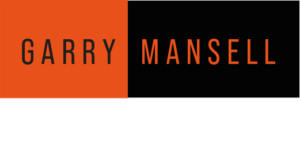I read a very good piece over the weekend by Richard Harroch. It was a thirty-five-step approach to starting a business and it contained a great deal of very good information. At number four Richard included this.
Focus on Building a Great Product—But Don’t Take Forever to Launch
When starting a business, your product or service has to be at least good if not great. It must be differentiated in some meaningful and important way from the offerings of your competition. Everything else follows from this key principle. Don’t drag your feet on getting your product out to market, since early customer feedback is one of the best ways to help improve your product. Of course, you want a “minimum viable product” (MVP) to begin with, but even that product should be good and differentiated from the competition. Having a “beta” test product works for many startups as they work the bugs out from user reactions. As Sheryl Sandberg, COO of Facebook has said, “Done is better than perfect.”
I agree totally with this point and especially in the software industry, where many start-ups exist, I have seen some interesting mistakes made in the last couple of years and one of them keeps getting repeated.
Often when launching a software-based start-up the founders are the individuals who have the initial idea. Very often they are the ones who write the code for the new application/business. This can be very good, but it can also lead founders into a problem area. Very often they fall in love with the idea and become zealots about their offering, forgetting the points Richard nearly made above.
If nobody wants your product, then nobody will buy it. If it doesn’t meet a need, then nobody will buy it. If it doesn’t work, then nobody will buy it.
There is another stumbling block that founders of software businesses often trip over.

Rightly so they want to make a fabulous product that their clients will love and use every day of their lives. The problem is they often enjoy coding, and don’t enjoy selling and marketing half as much. Their natural tendency therefore is to have ideas in their heads for new or advanced functionality that only very few of their clients would appreciate and they take time on this, at a cost to the other parts of their business. In my experience, where software is concerned, Pareto was pretty much right. Eighty percent of the users only ever use about twenty percent of the functionality.
So, I say to founders, have a road map for where you want the software to go and ensure that your roadmap truly reflects the wants and needs of your users by talking to them or giving them beta versions. Don’t build software to show how dedicated or clever you are, that is a given. You are running a business, not a vanity project. Just build intuitive functions that people will use and more importantly pay for.
Once you are established your clients will tell you what you need to add to your functionality, and here, follow Pareto again. Expect that you will build less than twenty percent of what your users think would be wonderful additions and always ask yourself the question before building in new functionality “Is this generic enough?” In other words, will most of your clients find it useful and is it universally applicable to many of your users. Finally, ensure that you only have one current version of your application. You really don’t want to find yourself stuck supporting old versions for the foreseeable future. I have seen this bring software start-ups to their knees.
A good way to ensure that you don’t create a vanity project rather than a business is to select your fellow founders well. Have someone who is responsible for the product, and for determining what goes into it. That is not you if you are writing the code. This person should represent both the client and the business and will probably also be your head of sales in the first instance. Choose a financially astute co-founder to run your ledgers and manage your company assets and finances, involve them is discussions about functionality of your software as well. Their job is not to stop things happening, it is to facilitate the right things happening. Next, find somebody who’s strength will be to run your operations, your purchasing and your web hosting and will likely manage your client support team as well, because trust me, you will need to provide client support, no matter how easy you think your software is to use. The true judges of that will be your clients. Finally, either find or employ a marketer or select to outsource this function and get the best you can afford, cheap marketing is just that, cheap, and it doesn’t work. A great marketer will be the difference between growth and just surviving.
This then leaves you, the founder who writes the code, free to do just that. Do what you do best, just like you expect from your fellow founders and the people you employ. Your job is to play to your strengths and write the best code that meets user needs that you can, after all it is probably what you enjoy doing most of all and when people enjoy what they do they are more productive and useful to the business. Head the business as the CEO but recognise that your fellow founders and employees are there because they have a different skill set to you, and they would not be able to understand or use some of the functionality that you would simply love to produce because it is cool and groundbreaking. And if they can’t understand a use for it, why would you expect your clients to?

